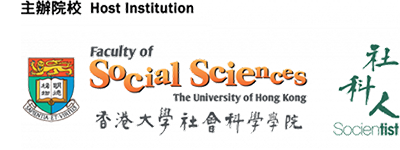Background
What is Autism Spectrum Disorder, ASD?
Autism Spectrum Disorder (ASD) is a group of developmental disorders. Signs and symptoms include impairment in reciprocal social interaction and communication, and the presence of stereotyped behaviours, interests, and activities. These characteristics often persist throughout the individual’s lifetime. They are typically evident within the first 3 years of life. ASD affects many aspects of a child’s development.
With new diagnostic criteria in recent years, categories of Autistic Disorder, Asperger’s Disorder, High Functioning Autism, Autistic Features, Atypical Autism and Pervasive Developmental Disorder Not Otherwise Specified are subsumedunder the new diagnosis of “Autism Spectrum Disorder” (ASD) as one disorder.
Reference: Department of Health, HKSAR (Click here: https://www.dhcas.gov.hk/en/autism_spectrum_disorder.html )
Local and Global Trend
In recent years, there has been a global trend of rising number of people being diagnosed as having ASD. According to the latest statistics of the US Centers for Disease Control and Prevention (CDC), about 1 in 44 children was identified with ASD in the USA in 2021. Ref: https://www.cdc.gov/media/releases/2021/p1202-autism.html) This is a stunning increase since 2000-02 when the CDC first began tracking the disorder and estimated the rate to be 1 in 150 children.
In Hong Kong, a similar trend of rapid increase in the number of children with ASD has been observed. According to statistics from the Education Bureau (EDB), in the four years from 2009/10 to 2013/14, the number of students diagnosed with ASD in public schools has increased from 2,050 to 4,970, more than doubling in 4 years. Many of these children with average or above intelligence are attending mainstream schools. Further increases happened 2017/18, to 8,872.
While it may take some time for researchers to tease out causes and cure for ASD, there is general recognition that the rising trend in diagnosis will continue. All developed countries have been putting in efforts to address the needs of this population, especially in the education of these children. Currently no established cure exists for this disorder and there is clear consensus among experts all over the world that early educational intervention is by far the most effective way to produce best outcomes for individuals with ASD and the society as a whole.
Students with ASD have inherent neurological deficits that impede their social and communication functioning, at the same time resulting in certain behavioral oddities. Consequently they encounter significant difficulties when they face everyday academic and social demands. Additional support are required to help them to cope with these demands, actualize their potentials, and integrate into the school and wider community. Without such support they will encounter difficulties on a daily basis, cause disruptions in schools and families, and pose great challenges to teachers and parents. Specifically, these needs include in-class support to help them participate in lessons as well as out-of-class remedial and explicit instruction on psycho-social and other adaptive skills.
Two pilot projects, by introducing non-governmental organisations (NGOs) to provide school-based professional support for students with ASD, had been conducted from 2011/12 to 2014/15 academic years, by The Hong Kong Jockey Club Charities Trust and Education Bureau (EDB) respectively. The results, which involved the participation of NGOs in school-based project, showed that the intervention not only successfully improved the social skills of students with ASD, but also provided strong evidence on the effectiveness of the coaching programme and other support strategies.
Subscribe to Our Newsletter
Please keep in touch with us and we will keep you updated with
the latest news, events and news.


